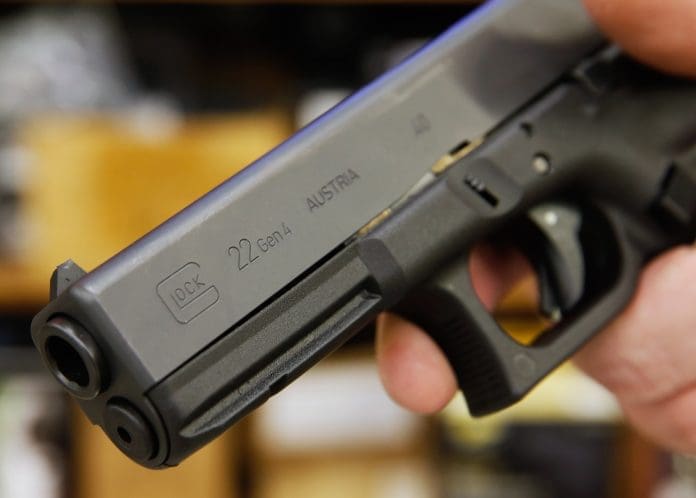Preliminary discussions follow tragic Minneapolis Catholic school shooting that killed two children
The U.S. Justice Department is exploring potential restrictions on firearm ownership for transgender individuals following last week’s deadly shooting at a Minneapolis Catholic church that left two children dead and multiple others injured.
Senior Justice Department officials have held internal deliberations in recent days over potentially issuing a rule that could restrict transgender individuals from being able to own firearms, according to two officials familiar with the discussions who spoke to ABC News on Thursday.
The August 27 shooting at Annunciation Catholic School during Mass killed two children and injured 18 others, with victims identified as Fletcher Merkel, 8, and Harper Moyski, 10. The perpetrator, identified as 23-year-old Robin M. Westman, died by suicide after the attack.
The discussions within the Justice Department remain in the early stages and any ban is far from being implemented, according to people familiar with the deliberations. No concrete proposals have been made at this time.
The goal of the potential ban, according to a Justice official, is “to ensure that mentally ill individuals suffering from gender dysphoria are unable to obtain firearms while they are unstable and unwell”, with gender dysphoria included in the American Psychiatric Association’s diagnostic manual.
A Justice Department spokesperson provided a carefully worded response to inquiries about the discussions. “The DOJ is actively evaluating options to prevent the pattern of violence we have seen from individuals with specific mental health challenges and substance abuse disorders. No specific criminal justice proposals have been advanced at this time.”
The preliminary discussions could place the Trump administration at odds with traditional Republican support for Second Amendment rights while specifically targeting the firearms rights of transgender Americans. The potential policy represents an unusual intersection of gun control measures with restrictions on a specific demographic group.
President Trump has previously implemented policies affecting transgender Americans, including executive orders banning transgender people from military service and requiring government-issued identification to reflect biological sex classifications.
The National Rifle Association said Friday it will oppose any blanket rule that limits Second Amendment rights, amid reports of the Justice Department’s considerations. Gun rights organization Gun Owners of America also responded on social media, stating: “GOA opposes any & all gun bans. Full stop.”
According to the Violence Prevention Project, 98% of mass shooters in the United States are men and boys, with transgender perpetrators representing a small fraction of overall gun violence cases.
The Minneapolis shooting occurred during a packed Mass as the Catholic school marked its first week of classes. The two children who died, ages 8 and 10, were killed as they sat in the pews, while other children shot in the attack ranged in age from six to 15 years old. Three adults injured were parishioners in their 80s.
Search warrants revealed that three guns were taken into evidence: a Taurus semiautomatic pistol, a Mossberg pump-action shotgun, and a Magpul semiautomatic rifle, indicating the shooter was heavily armed for the attack.
Vice President JD Vance met Wednesday with families and survivors of the mass shooting, while protesters gathered along his motorcade route holding signs reading “Pro-Life = Pro-Gun Safety” and “Hate Won’t Make America Great.”
The Justice Department’s internal discussions represent a significant development in federal gun policy, as authorities grapple with preventing mass violence while addressing constitutional rights concerns. The approach of targeting specific demographic groups for firearm restrictions rather than implementing broader gun control measures reflects the administration’s political calculations.
Legal experts note that any such restrictions would likely face immediate constitutional challenges on both Second Amendment and equal protection grounds. Courts would need to evaluate whether targeting transgender individuals for gun ownership restrictions constitutes discriminatory treatment under federal law.
The preliminary nature of the discussions suggests the administration is still evaluating the legal, political, and practical feasibility of implementing such restrictions. The policy development process would require extensive legal review and likely face significant opposition from civil rights organizations.
The Minneapolis tragedy has renewed debates about gun violence prevention measures, though the Justice Department’s focus on transgender restrictions rather than broader gun control policies reflects the administration’s approach to addressing mass shootings through targeted interventions rather than comprehensive reform.
As discussions continue within the Justice Department, the outcome will significantly impact both gun policy and transgender rights in America, potentially setting precedents for how the federal government addresses the intersection of public safety concerns and civil liberties protections.
Source: newsghana.com.gh











